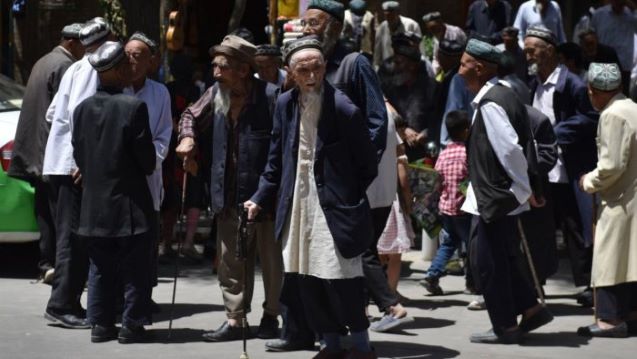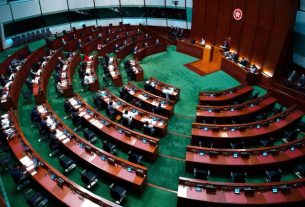Human rights groups and the United Nations are using Saturday’s two-year anniversary of a landmark UN report to call for action on the document which said that China may have committed crimes against humanity in the Xinjiang region.
Ex-UN high commissioner for human rights Michelle Bachelet released the report on August 31, 2022, just minutes before her four-year term ended.
At the time, Yalkun Uluyol was filled with hope for his father who had disappeared in 2018.
Instead, he later received news that his father had been sentenced to 16 years in a Xinjiang prison in a move Uluyol believes was linked to his identity as a Uighur — a group of mostly Muslims who rights groups and the US government say are subject to widespread repression by Beijing.
“I was very happy when the report was out. But now I feel like, yes, you released a report, but so what? My life has not gotten any better. On the contrary, it’s been worse,” the 30-year-old researcher, who lives in Istanbul, told Reuters on Friday.
China has vigorously denied any abuses in Xinjiang and issued a 131-page response to the report defending its record.
Foreign Ministry Spokesperson Lin Jian said this week that China fully protects the rights of all ethnic groups.
Uluyol is part of a growing chorus of human-rights advocates frustrated by what they say is a failure by China to implement the UN report recommendations, including a call for prompt steps to release those arbitrarily detained in Xinjiang camps and prisons.
He and others are asking UN High Commissioner for Human Rights Volker Turk to step up pressure on China after months of detailed exchanges with Beijing over its record.
“Saying ‘we are engaging with China’ has not been enough,” said Uluyol, who also posted his concerns on X, and said he raised them with Turk.
Prominent rights advocate Kenneth Roth was more searing, calling Turk’s China approach “timid”.
The 2022 report said the extent of arbitrary and discriminatory detention of Uighurs and other Muslims in the western Xinjiang region may be an international crime.
Turk, a former lawyer who became high commissioner after the report’s release, said at the time he stood by the document. Since then, he has repeatedly called for action by China.
This week his office said “many problematic laws and policies remain in place” in Xinjiang and urged authorities to undertake a full review.
“There’s a lot to be desired, which is why we need to continue to work with them, to engage, to see where we can have some progress,” UN Human Rights spokesperson Ravina Shamdasani told reporters.
Turk’s supporters say he is striking a balance between public criticism and private engagement which could yet yield reforms. But others want more.
“The office needs to issue an update on the current situation in Xinjiang and present a concrete action plan for holding those responsible to account,” said Maya Wang, associate China director at Human Rights Watch, who also called for action by states at the UN Human Rights Council meeting in Geneva in September..__Courtesy dawn.com





